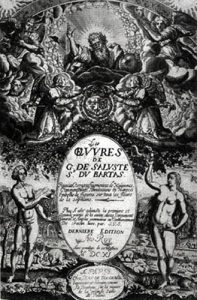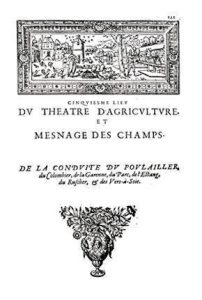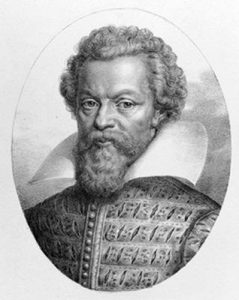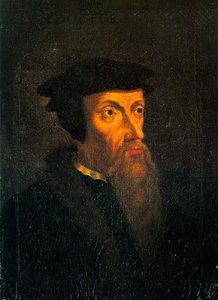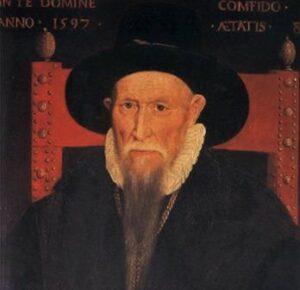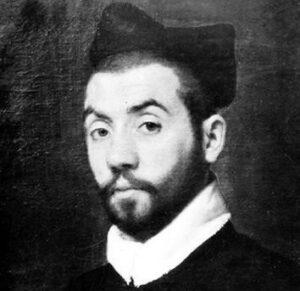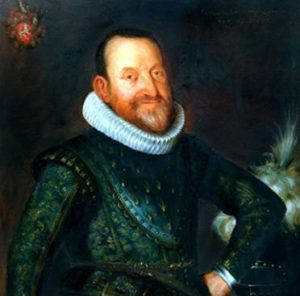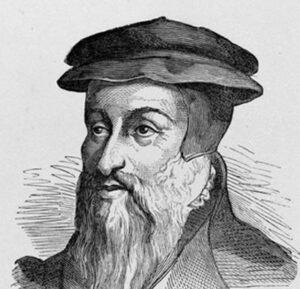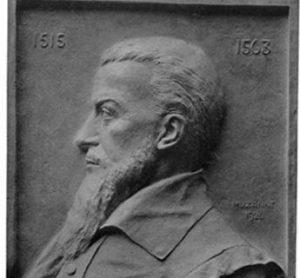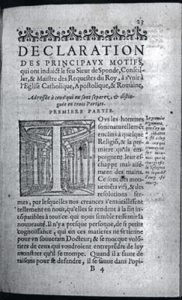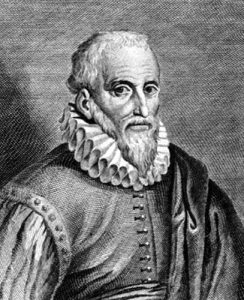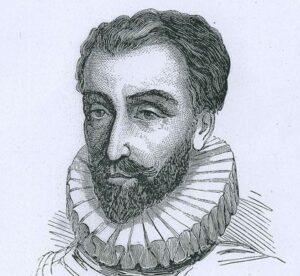Religious poetry
Such an influence was first expressed in poetry. In the field of religious inspiration, the exceptional quality of Clément Marot and Théodore de Bèze’s Psalms, as well as Agrippa d’Aubigné’s wonderful visionary Tragiques should not overshadow other major works. The Reformed faith also inspired a great number of writings and the biblical inspiration in Du Bartas’ Semaine was a great success throughout Europe. It was likewise expressed in a more private and discreet manner in meditations such as Jacques Grévin’s sonnets or in Pastor Chandieu’s Octonnaires. Jean de Sponde’s Poèmes chrétiens are a perfect example of simple, deep and stirring Huguenot lyricism.
Secular literary genres
Protestantism was not limited to a severe and strict religious framework ; it’s influence was present in secular literary genres as well. The late Renaissance renewal revived passionate, tormented love poetry, as in Agrippa d’Aubigné’s Printemps (Spring) or de Sponde’s Amours (Loves).
In play-writing also, Reformed writers innovated : the first French tragedy, Abraham sacrifiant (the sacrifice of Abraham) was written by Théodore de Bèze in 1553. It was followed by Louis de Masures’ biblical trilogy, and by the Huguenot dramatist Jean de la Taille‘s De l’Art de la Tragédie (The art of tragedy), a pre-classical treatise.
Further Protestant authors wrote in most light or serious literary genres that marked their epoch, even though nowadays they may seem strange or distant :
- entertaining works such as Eustorg de Beaulieu’s Chansons et blasons, the illustrated emblems of Guillaume Guéroult or Georgette de Montenay,
- learned writings, translations or works concerning linguistics by Pierre de La Ramée – referred to as Ramus – and Robert Estienne ; historical works by Jean Crespin, Simon Goulard, François de La Noue or even Agrippa d’Aubigné and his Histoire Universelle.
Natural and human science
The reformed influence also inspired some fundamental texts of practical or applied literature in various fields of natural and human science, such as ecology and chemistry by Bernard Palissy and Olivier de Serres Agriculture et ménage des champs (Agriculture and field management), or in surgery by Ambroise Paré and ethnology by Jean de Lhéry.
In the political field some precursors appeared advocating freedom of thinking, as in Sébastien Castellion’s writings, or the nation’s sovereignty in the case of François Hotman.
A modern language
To all these various types of works should be added writings of a theological and polemical nature, notably Pierre de Viret’s and Philippe Duplessis-Mornay’s works. Thanks to the latter the Reformation had a long-lasting and deep influence on the development of a modern, clear and efficient language.
Thus Calvin’s language is generally considered to be the first manifestation of great French prose.
The original contribution of the Reformation to French Literature is not to be limited to a solid and rigid unit, but should be recognised in a diversity of genres and subjects, as well as in a general the interest in the concerns of the times.

